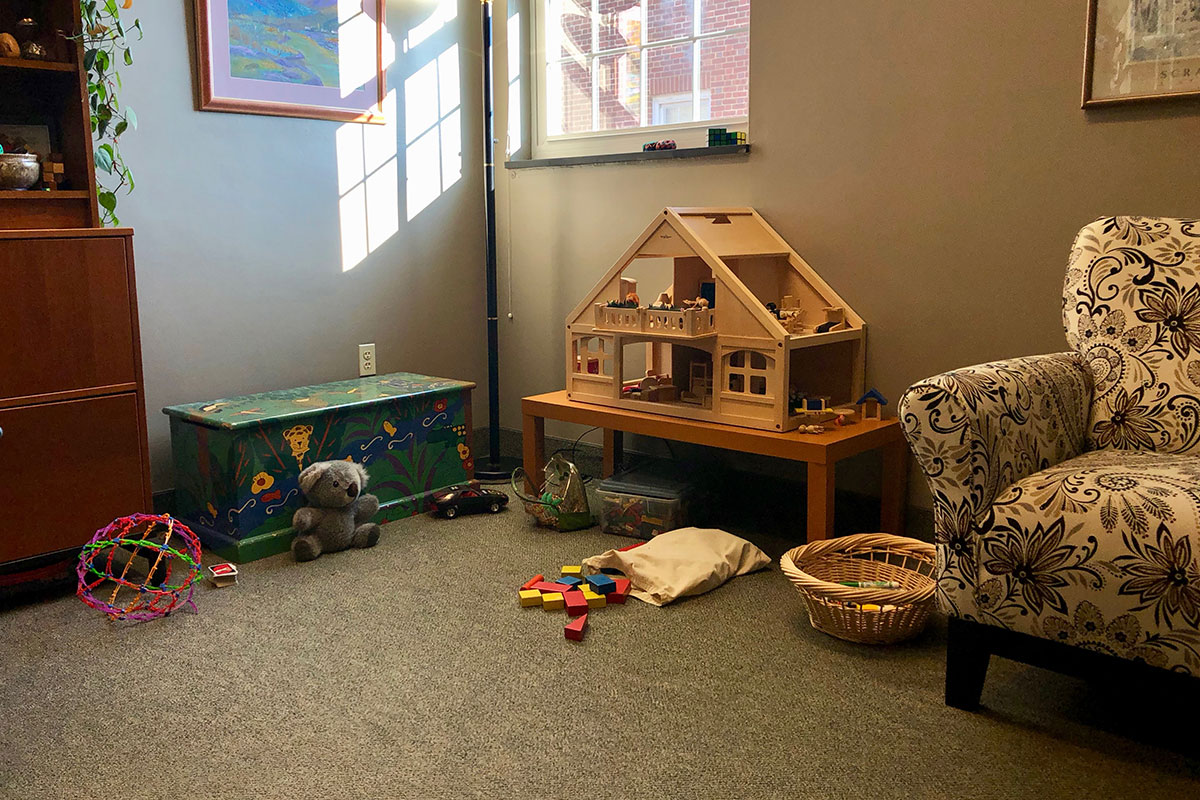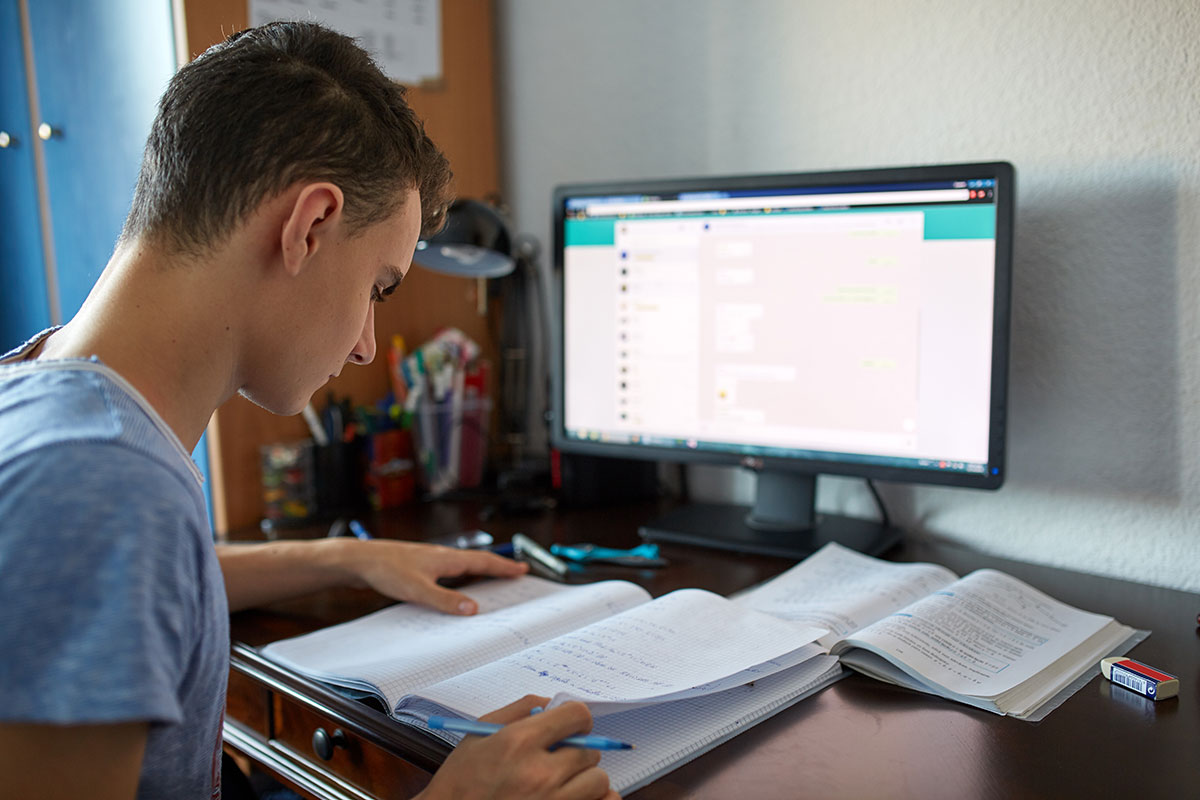Our Therapy Approach
At Bryn Mawr Psychological Associates our psychologists approach therapy with children and adolescents in the context of parent consultation. In our experience parents are looking for insight and guidance as to how they can help their children. Although individual time is spent between the therapist and the child, a parent often participates in part of the session, which includes brainstorming, guidance, and feedback. By parent request, we communicate with school staff, pediatricians, or others significantly involved in their child’s care to establish a team approach.
When indicated we meet in a family therapy format in which parents and children/adolescents meet together to work on their relationships and the problems they are encountering. There are other families, however, in which all involved feel that we can be of most help by providing a private, individually-oriented therapy for their child. The primary treatment orientation of our psychologists is cognitive behavioral therapy (CBT).

First Appointment
The first appointment provides an opportunity for you and your psychologist to get acquainted and to begin the process of discussing the issues of concern to you. By the end of the initial appointment there should be direction and planning for how therapy can be of benefit to you. You should have a solid sense when you leave the first session that your therapist can help you. Ongoing therapy sessions are typically scheduled once a week or once every other week in the early months. Often sessions then move to a less frequent basis so that there is more time to assess improvement between sessions.
Families with children 12 years of age and younger: Typically, the first appointment is with parents only. This provides an opportunity for parents to meet their psychologist and see the office setting in advance to ensure that they feel confident and comfortable in bringing their child. It also allows for an open discussion of concerns without leaving the child feeling embarrassed or "ganged up on" by the grown-ups. Usually, the child attends the second session which is designed to establish rapport, to get their take on school, home, and friends, to discuss the areas of concern, and for the therapist to consider alternative diagnoses. The parent joins the second half of that session to get started with interventions. Although children and adolescents are anxious upon arriving they are usually comfortable within a few minutes and are interested in returning for the next appointment. Parents are welcome to stay in the room for the full session if their child is anxious about separating.
Adolescents: Typically teenagers and parents attend the first appointment together. Everyone puts forth their concerns and a plan is developed. An effort is made to get all family members "on the same page" and working together. Generally the adolescent meets alone with the therapist for about half of the first session about any additional concerns.
Rating forms and prior reports: As part of the Initial Evaluation we often give families standardized rating forms to complete to provide extra data about diagnoses and treatment. We also read prior evaluations, IEP’s and 504’s (if applicable), and recent report cards to aid in understanding the overall picture.
Emergencies: If there is a very urgent situation, such as suicidal thinking or severe anxiety we schedule the first session ASAP and have the child/adolescent attend that first appointment with their parents.
Common Questions of New Families
- "Do you help kids with milder issues who do not have a diagnosis?" (yes)
- "Do we come with or without our child for the first session?"
- "Will my child be comfortable coming in?"
- "What is Cognitive Behavioral Therapy?"
(See FAQ) - "I don’t want my child to feel stigmatized by coming in. What do you do to keep that from happening?"
- "I just want my child to open up more with me and not keep so much inside."
- "I want to know what is going on and to get some direction for myself as a parent—what should I be doing differently?"
- "We see some symptoms but we would like to know if our child actually has a psychiatric diagnosis."
- "My spouse and I are not on the same page. Can you help with that?"

Young Children
Behavioral consultation: Parenting challenges are a frequent focus in this age group. Our psychologists work with parents to develop effective behavioral interventions to reduce/eliminate behaviors such as hitting, biting, tantrums, and defiance. Counseling is also provided to help parents with separation anxiety, sleep problems, feeding issues, sibling conflict, divorce issues, and problems adjusting to day care or preschool.
Parent stress: We provide guidance for parents having difficulty managing their own anger, frustration, and emotional distress that they encounter as they try to cope with their children’s problems. In many families experiencing stress, parents are not “on the same page” about how to handle discipline and other challenging situations with their child. We strive to help them to reach consensus in establishing effective skills.
Special circumstances: Loss of a parent or sibling, adoption issues, trauma, and coping with serious medical issues are areas in which we provide support and guidance.
Diagnostic questions: Parents and pediatricians sometimes want a professional opinion about whether or not a child has a psychological condition such as ADHD, anxiety, or mild autism, or if the issues of concern are just developmental in nature and not of diagnostic concern. We are able to assess and diagnose most mental health conditions and to offer treatment recommendations.
Common Referral Questions for Young Children
- "My child has so much energy I can’t seem to get him to listen to me."
- "The pre-school wants us to get help for our son’s aggressive behavior."
- "My child has a very hard time separating."
- "I am having a lot of trouble managing my own anger when my children act up."
- "We can’t get our son to sleep in his own bed."
- "We are trying to figure out if our son has autism."
- "We are going through a divorce and need ideas for helping our children with the changes."

Elementary School Age Children
Behavioral consultation: Handling problems at school, sleep problems, homework stress, worrying, peer acceptance, sportsmanship, divorce, managing impulses, handling bullying, and loss are common areas of concern for which our psychologists provide counseling.
Intervention for psychological conditions: Therapy is provided for the full range of emotional, behavioral, and neurological problems including Anxiety, Depressed mood, ADHD, Learning Disabilities, OCD, Oppositional Defiance Disorder, and Autism Spectrum Disorders.
Family and parenting challenges: Parenting and family therapy are utilized in many sessions to help with issues such as family stress, parent-child conflict, communication breakdown, sibling conflict, stress for children caught up in marital discord/divorce, defiance of household rules, and refusal to attend school.
Diagnostic questions: Parents and pediatricians sometimes want a professional opinion about whether or not a child has a psychological condition such as ADHD, anxiety, depression, or mild autism, or if the issues of concern are just developmental in nature and not of diagnostic concern. We are able to assess and diagnose most mental health conditions and to offer treatment recommendations.
Common Referral Questions for Elementary Schoolers
- "My son is a great kid outside the home but his anger and behavior are wreaking havoc on our family life."
- "Our daughter worries constantly and is developing unusual anxieties and behavior."
- "My child has no friends."
- "Our son is very unhappy and it seems impossible to get him to open up."
- "Help! It is almost the end of elementary school and bedwetting is still a problem."
- "How do we get our kids to stick with reasonable limits with electronics?"
- "We really need help with our child’s social skills and behavior."
- "My child has some learning and attention issues that really stress him out at school and make homework a nightmare for everyone."
- "Our son has Asperger Syndrome and is really struggling with his classmates."
- "Does Cognitive Behavorial Therapy (CBT) work for kids in elementary school?" (Yes!)

Middle School and High School Age
Intervention for psychological conditions: Therapy is offered for the full range of emotional, behavioral, and neurological problems including Anxiety, Depression, OCD, Bipolar Disorder, ADD/ADHD, Oppositional Defiance Disorder, and Autism Spectrum disorders.
Adjustment issues: Stress, family conflict, perfectionism, sports psychology, procrastination, loneliness, school apathy, organization, indecision about colleges, declining grades, uncertainty about the future, peer issues, motivation, game addiction, handling stress, and sleep problems are some of the more common issues we address.
Crises for adolescents: Our psychologists regularly help teens with suicidal feelings, involvement in difficult romantic relationships, disengagement from parents, loss of close friendships, drug and alcohol use, conduct problems, school apathy, social rejection, bullying problems, internet issues, and questions/concerns about sexual orientation or gender.
Challenging youth: It is not uncommon for our practice to receive calls from parents saying that their teen will refuse to go to therapy or that their teen has seen other therapists but did not improve. Our therapists are very experienced with handling difficult situations like this and discussing with parents optimal ways to engage their adolescents in counseling.
Diagnostic questions: Parents and their teens sometimes want a professional opinion about whether or not a child has a psychological condition such as ADHD, bipolar disorder, OCD, depression, or Aspergers, or if the issues of concern are not of diagnostic concern. We are able to assess and diagnose most mental health conditions and to offer treatment recommendations.
Common Referral Questions for Middle and High Schoolers
- "I am worried about my teenager and really need a psychologist with a lot of experience with adolescents."
- "My son/daughter has lost their motivation with schoolwork."
- "When we take away our son's cell phone he sometimes goes into a rage and threatens to harm himself or us."
- "My child is getting bullied. We need ideas about what to do."
- "I'm worried about the friends my child is hanging out with."
- "My child’s study habits are really a problem."
- "My daughter has such awful mood swings! Could she have bipolar disorder?"
- "Communication between my teenager and me has really broken down."
- "My son insists that 'everyone' smokes pot and drinks. I’m not sure how to address this."
- "Our college search is causing terrible stress at home."

School Problems
We believe that much can be accomplished in maintaining and promoting an effective collegial connection between parents and school personnel even in the most challenging of situations involving students.
Connecting with school personnel: Our psychologists are experienced in helping with challenges that children and adolescents may be experiencing at school. This includes calling or meeting with teachers and school counselors to develop plans for assisting students struggling with ADHD, autism spectrum issues, anxiety, homework stress, bullying, isolation, and other school-related challenges. We have worked with students and staff in nearly all of the local public and private schools.
Student observation: Our psychologists provide unobtrusive observations of pre-school and elementary school students. Sometimes parents need independent information and consultation about their child’s behavior in the classroom or at recess especially regarding inattention, disruptive behavior, and social difficulties. Data and observation can then be used to help shape effective intervention during the school day.
Outside services: We help families to determine if neuropsychological, comprehensive psychoeducational testing, educational advocates, tutoring, medication consultation or other outside services are indicated. Some families seek guidance about whether or not there is another school in the area that might better meet the needs of their child/adolescent.
Crises: Occasionally, students/families/schools are in crisis and need rapid help in addition to what the school can provide in stabilizing the student and/or situation. Examples include refusal to attend school, suicidal thoughts, severe bullying, and dealing with suspensions.
Common Referral Questions Regarding School Issues
- "My son is gaming all the time and not doing his homework."
- "I feel like my daughter’s issues are getting overlooked because she is not a behavior problem."
- "We're in trouble and need a quick consultation about what to do!"
- "My son doesn't seem to be able to connect with his classmates at recess and lunch."
- "Our daughter is refusing to go to school! What are we supposed to do?"
- "Do we need to consider switching to another school?"
- "My children and I can't handle virtual schooling!"

College Students
It is fairly common throughout the year for college students or their parents to reach out to us from long distance to inquire about the benefit of counseling and how best to follow through with that. Some students are already seeing therapists in their home states and are looking to transfer their therapy locally. We are happy to converse with any parent or student to see if one of our psychologists who treats college students can be of help.
There are many excellent colleges in close proximity to Bryn Mawr Psychological Associates. Our practice is accessible by car, train, and walking (depending upon the college). College is a time of excitement and new experiences for young people but also a time of new stressors such as balancing relationships, academic independence, sports psychology, easy access to substances, and less personal support/guidance from parents.
Some students come to college with known challenges such as substance use, academic challenges, mood or anxiety disorders, ADHD, and Aspergers. Often parents do not learn that a difficult situation has developed until after their college-age young adult is experiencing serious academic issues sometimes preceded by other significant concerns such as avoiding classes, escalated substance use, excessive gaming, withdrawal from their peers, or having gotten into a problematic relationship.
Common Referral Questions for College Students
- "My child is depressed at college and needs professional help."
- "My daughter had a falling out socially and is distressed."
- "Our son’s grades have really dropped."
- "Our student is withdrawn and not socializing with anyone."